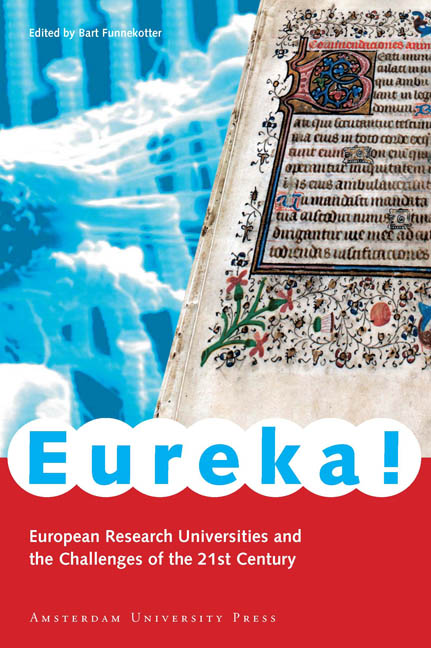Book contents
- Frontmatter
- Contents
- Foreword
- Introduction: Challenges of the Twenty-first Century
- Cambridge: Cambridge University
- Edinburgh: University of Edinburg
- Geneva: Université de Genève
- Heidelberg: Ruprecht-Karls-Universität
- Helsinki: Helsingin Yliopisto
- Leiden: Universiteit Leiden
- Louvain: Katholieke Universiteit Leuven
- Milan: Università Degli Studi Di Milano
- Munich: Ludwig-Maximilians-Universität
- Oxford: Oxford University
- Stockholm: Karolinska Institutet
- Strasbourg: Université Louis Pasteur
Oxford: Oxford University
Published online by Cambridge University Press: 23 January 2021
- Frontmatter
- Contents
- Foreword
- Introduction: Challenges of the Twenty-first Century
- Cambridge: Cambridge University
- Edinburgh: University of Edinburg
- Geneva: Université de Genève
- Heidelberg: Ruprecht-Karls-Universität
- Helsinki: Helsingin Yliopisto
- Leiden: Universiteit Leiden
- Louvain: Katholieke Universiteit Leuven
- Milan: Università Degli Studi Di Milano
- Munich: Ludwig-Maximilians-Universität
- Oxford: Oxford University
- Stockholm: Karolinska Institutet
- Strasbourg: Université Louis Pasteur
Summary
Oxford University in facts and figures:
Founded in 1096
10,097 students
7,866 staff
Budget € 683 million
‘Harry Potter at Christ Church’ announces the cheerful red lettering on a blackboard next to the entrance to the stately College at the edge of Oxford's city centre. Tourists, mainly American, queue to buy tickets from the bowler-hatted gatekeepers, nicknamed ‘bulldogs’, who collect their money impassively. Those who are too impatient to walk the entire route of the tour, which leads past scenes familiar from the films starring the world's most famous aspiring wizard, are pointed in the direction of the highlights. Video camera at the ready, a heavy-set American in a Hawaiian-print shirt barrels towards the dining hall. Inside the hall, staff are laying the long tables in preparation for the evening meal, supervised by a portrait of King Henry the Eighth, the founder of Christ Church. The scene encapsulates the essence of Oxford University in all its contradictions: ancient and conservative, yet hypermodern and progressive. Oxford is England's oldest university and steeped in tradition, but it is also the most successful one at capitalizing on its scholarship. It is the academy of the elite, but it provides educational opportunities for less privileged young people from all over the world. Oxford's university community exists in protected isolation from the rest of the city, while its buildings attract hundreds of thousands of tourists every year.
Paradoxical paradise as it may be, Oxford University does not seem to suffer from this duality of character. The 21st century meshes seamlessly into a tapestry of nine hundred years of history. The university's central administration is responsible for providing modern research facilities; each of the tens of Colleges sets out its own research and educational programmes (the structure of the relationship is comparable to that between the federal and state governments in the US). All applications are first evaluated by the university and then sent on to a particular College. Here the decision is taken whether to accept a candidate or return the application to the university, which will then offer it to another College. This may not sound like an efficient manner of dealing with applications, but it is out of the question that this age-old process might be changed. Progress is fine, but Oxford must remain Oxford.
- Type
- Chapter
- Information
- Eureka!European Research Universities and the Challenges of the 21st Century, pp. 127 - 137Publisher: Amsterdam University PressPrint publication year: 2005



